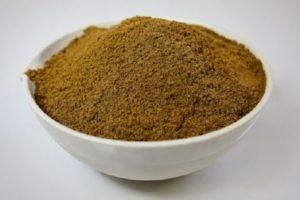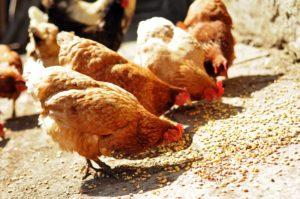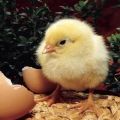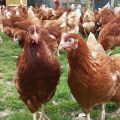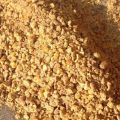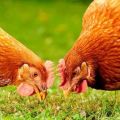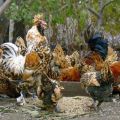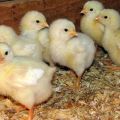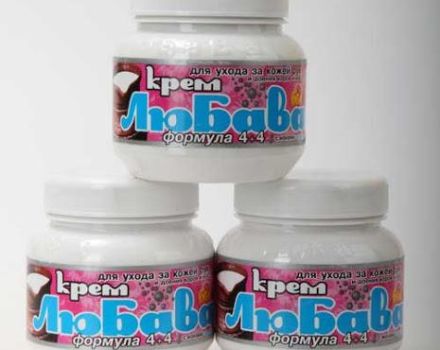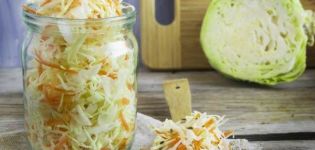Description and composition of the best vitamin complexes for chickens, dosage
Vitamins for chickens and chickens must come from food. Poultry farmers do not always manage to choose the right feed for the birds. Special supplements that can be bought at any veterinary pharmacy will help to cope with this task. Chickens are given vitamins from 7-8 days of age. Vitamin supplements are added to feed in small quantities. Give for 5-7 days, then take a break. The next month, the intake of vitamin formulations is resumed.
What is the role of vitamins for chickens
It is important that in the first days of life the chicks receive a balanced diet rich in vitamins. After all, complete feed is the basis for normal development, excellent health, and in the future - high productivity of layers.
Vitamins are involved in biochemical processes that ensure the vital activity of the bird's body. Without them, it is impossible to imagine the growth, functioning and constant regeneration of organs and systems. A number of vitamins (B, D) are independently synthesized by the body. They are responsible for the normal metabolism, the full functioning of the organs and the immune system.
True, the bird's body receives a huge amount of vitamins from food. If they are not in the feed, then the chicks will start to hurt, stunted, and gain weight poorly.
Useful features of vitamins
For the normal development of chickens, the entire vitamin complex is needed. Fat-soluble - A, E, B, K - are responsible for growth, vision, regeneration, the growth of muscle tissue and skin, overgrowth with feathers. Water-soluble - C, H, B - ensure the functioning of the digestive, cardiovascular, nervous, and immune systems.
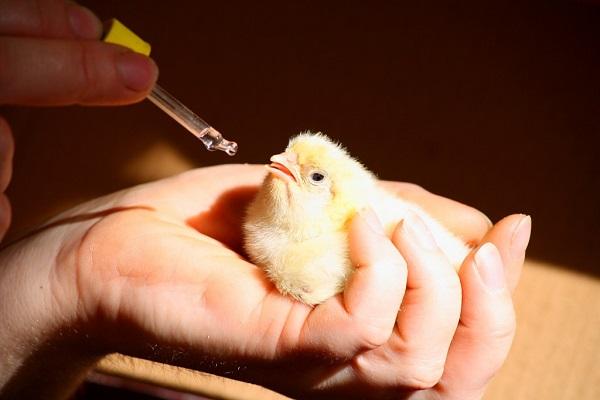
How to understand that chickens need vitamins
The supply of vitamins to the bird's body ensures the well-coordinated work of all organs and systems. Deficiency of these substances affects the health, well-being, appearance and productivity of chicks. Chickens should receive vitamins from food and vitamin preparations. A bird that does not fully receive all the nutrients begins to get sick and may even die.
A lowered level of vitamins can lead to the development of hypovitaminosis or vitamin deficiency.
Unbalanced nutrition, poor quality feed, expired premix can become the cause of the disease. Fortified feed can be poorly absorbed by the body if the bird has salmonellosis, helminthiasis, diseases of the digestive system.
With a lack of vitamin A, chickens lose their appetite, the beak begins to peel off, vision weakens, and a wobbly gait appears.Deficiency of group B is manifested by the loss of feathers, inflammation of the beak and skin near the anus, chickens may experience convulsions, seizures, head throwing back. With a lack of C, the bird grows poorly, often gets sick.

Hypovitaminosis D leads to the development of rickets, brittle bones. K deficiency can be identified by a pale crest and earrings, ruffled feathers, bruises on the skin. Lack of E is manifested by an unsteady gait, muscle weakness, and a sharp change in behavior.
Natural Vitamin Supplements
From the first minutes of life, chicks must be properly fed so that they grow healthy and gain weight quickly. After birth, they can be given a fat-free serum. 3 days after birth, the chicks, in addition to millet and mixed feed, are given yolk, cottage cheese, yogurt, fresh grass, cereal sprouts. On day 5, add grated carrots, cabbage, sorrel, green onion feathers.
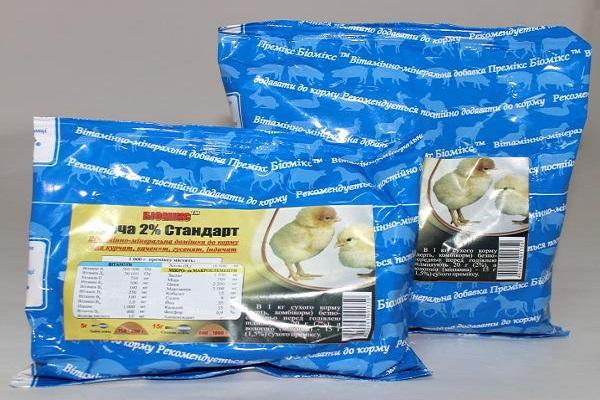
Vegetables are given in the calculation of 1 gram per bird, over time the dosage is increased to 5 grams. On the 8th day, brewer's yeast is added to the feed every 2 weeks (1 spoon for 10 birds).
On the 6th day, chickens can be given vitamin pharmacy complexes in the dosage specified in the instructions. Additives are mixed into moistened feed or poured into drinking water. It is allowed to use premixes consisting of a complex of vitamins, various minerals, amino acids and antibiotics. Such an additive in small doses is added to the feed, however, the food should not be hot, otherwise useful substances will be destroyed. Ready-made premixes are contained in the starter compound feed.
Review of popular drugs
Vitamin requirements in birds change with age. Most of all they are needed in the first weeks of a chick's life. An increased amount of vitamin supplements is added to feed during the period of illness of birds. Vitamin formulations can be purchased at any veterinary pharmacy. True, the dosage should be prescribed by a veterinarian.
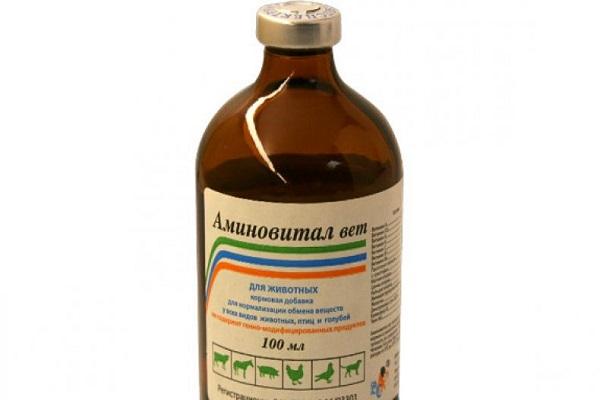
Most often, poultry farmers give birds such vitamin complexes as a preventive measure:
- Aminovital. It is a yellow aqueous solution. Contains eight vitamins, 18 amino acids, trace elements. Chickens are given from the eighth day of life. Dose: 2 milliliters per 10 liters of water for 5-10 days. Reception is repeated every month.
- Mixovit V. The complex includes: K, C, B 1,2,6,12. It is a water-soluble yellowish powder. Mixed into drinking water at the rate of five grams per liter. The supplement is given once a day for 7 days.
- Immunovital. It is a transparent pink liquid that is mixed into water. Dose: 1-3 milliliters per liter of liquid. The drug increases the immunity of the bird.
- Threaded. It is a transparent oily brownish liquid, in the composition there are A, E, D. The drug is added to the feed at 8-20 drops per 1 kg of grain.
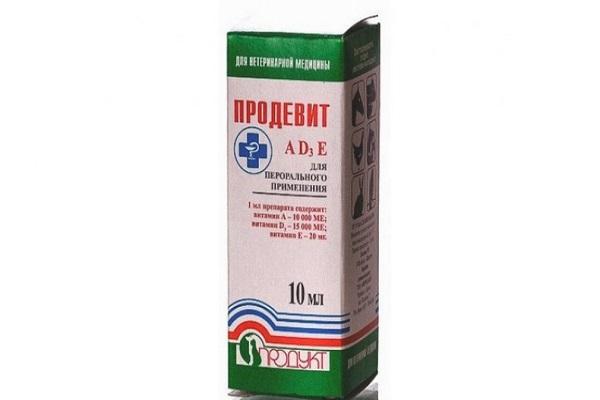
Fat-soluble vitamins
Fat-soluble include: A, E, K, D. These vitamins accumulate in the body of birds (in the liver, pancreas). Their lack, as well as an excess, can lead to negative consequences, deterioration of the health of the bird.
Vitamin A is found in the following preparations: Animal Caroline, Rovimix A 1000. Rovimix Hy-D, Videin provides the need for vitamin D. Fish oil is a source of A and D. Trivit, Trivitamin contains A, D and E. In the preparation Rovimix E, Dietvit E + Se, Lovit E + Se is found E. K is contained in Menadion, Vicasol.
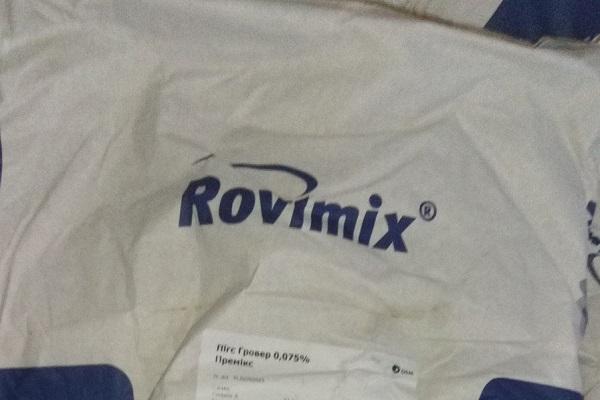
Water-soluble complex
Water-soluble include: C, B (1,2,3,4,5,6,12), H, B9 (folic acid). Usually they come with food, do not accumulate in the body, their reserves are enough for a short time. Vitamin C is found in the preparation Ascorbic acid.
B1 - Rovimix B1, Thiamine bromide. B2: Riboflavin, Rovimix B2. B3 is nicotinic acid. B5: Calcium pantothenate, pantothenic acid. B4 is Choline. Vitamin H - Biotin. B6 is pyridoxine hydrochloride. B12 - Cobalamin.
How to properly solder chickens with vitamins
Newborn chickens should be given a low concentration glucose solution to help the yolk dissolve. Then, instead of ordinary water, it is better to give diluted whey to improve the microflora of the stomach, to populate it with beneficial bacteria.
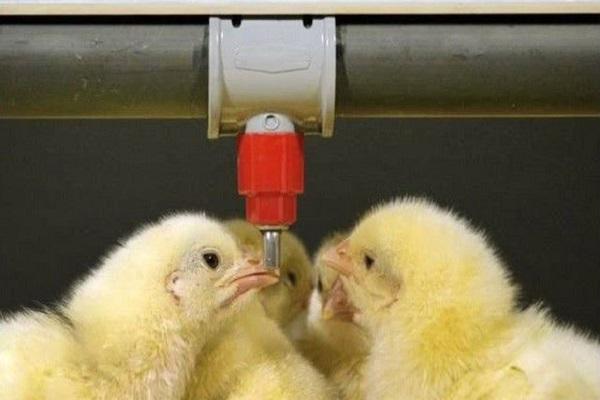
Antibiotic-free regimen
On the fifth day of life, chicks can be given A and E. Once a day, half a drop of a vitamin preparation is added to the liquid for drinking. On the 7th day, the dose is increased to 1 drop, vitamins K, B, D are injected. On the 13th day, 2 drops of a vitamin supplement are added to the water.
Then they take a break for 2 weeks, after which 5 drops of the vitamin composition are dripped into the drinking bowl once a day.
Scheme with the inclusion of antibiotics
Chickens are given antibiotics from the tenth day of life. It makes no sense to take medications before, since there is no formed microflora in the body of the chicks. Baytril is given as an antibiotic. They drink it for 3 days. The chickens are then given vitamins and probiotics.
You can give the drug Chiktonik. It is added to drink at a dosage of 2 milliliters per liter of water. The birds are soldered for 7 days after antibiotics, and then they take a break for 2-3 weeks.
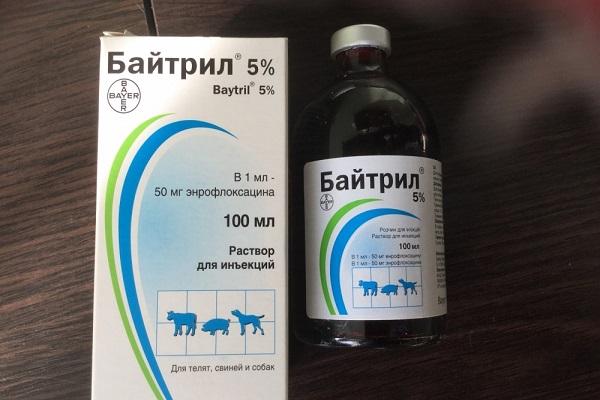
Control over vitamins in broiler diets
Chickens will not be sick with vitamin deficiency if you monitor the quality of feed and provide them with vitamin supplements in a timely manner. You can cope with a mild form of this disease on your own if you introduce vegetables, herbs, fruits, bone meal, sprouted grains, and cottage cheese into the diet of birds.
It must be remembered that vegetables and herbs alone are not enough to fully provide the bird with all the necessary vitamin supplements. Vitamins are found in a wide variety of foods. For example, B can be found in baker's yeast. Shock dose C - in germinated grain. Milled grains of wheat, corn, oats contain A, B, E, PP. Boiled yolk contains a lot of vitamin E.
All these products must be in the diet of chicks. True, they need to be introduced gradually so that the stomach of the birds gets used to the new food.
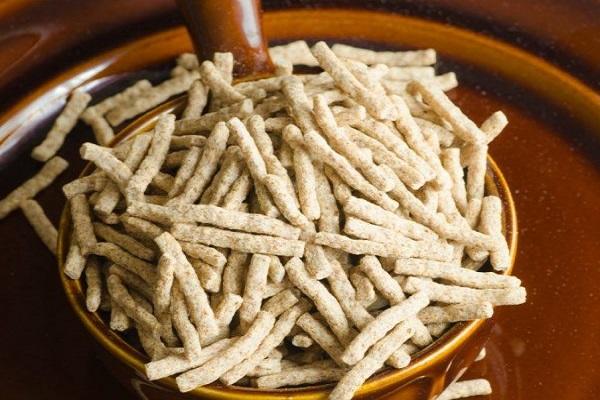
Prevention of vitamin deficiency
For normal development, chickens need a balanced diet, vitamin supplements and proper maintenance. The bird should walk in warm weather in the fresh air, the room should be kept at an acceptable temperature and light regime.
For vitamin A fortification, chickens should be given carrot juice instead of water. The diet should contain greens, nettles, cabbage, needles, berries, fruits, egg yolk, cottage cheese, beef liver. Birds should not be given fish, legumes, otherwise B1 will collapse. It is recommended to feed with sprouted or ground grain, add dry brewer's yeast to the feed.
